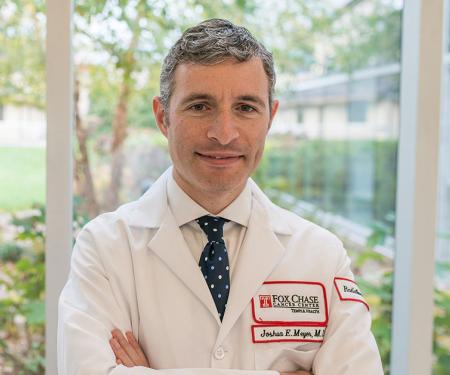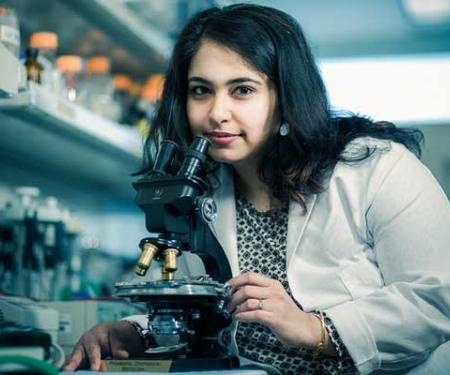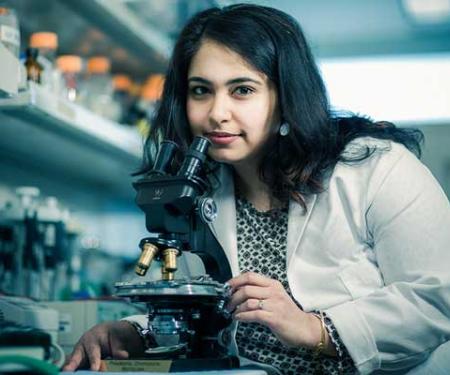This Fox Chase professor participates in the Undergraduate Summer Research Fellowship.
Learn more about Research Volunteering.
Related Articles
00 / 00

This Fox Chase professor participates in the Undergraduate Summer Research Fellowship.
Learn more about Research Volunteering.
Assistant Professor
Member, Cancer Epigenetics Institute
My Lab's core affiliation is with the Cancer Prevention and Control Program at FCCC. In addition, I hold an adjunct position in the Department of Radiation Oncology, am a member of the Cancer Epigenetics Institute within FCCC and maintain adjunct faculty roles at Drexel University School of Medicine, Temple University’s Lewis Katz School of Medicine, and its College of Public Health.
My principal focus revolves around understanding how innate genetic variation in DNA repair can shape an individual's predisposition to cancer and influence the outcomes for patients undergoing DNA-damaging treatments, such as chemotherapy and radiation. As a trained molecular geneticist, I delve into studying polymorphisms or mutations that may compromise the efficiency of DNA damage response and repair. With this knowledge, our goal is to identify biomarkers that can predict cancer susceptibility and treatment outcomes. These potential biomarkers include unique genes, their polymorphisms, proteins, and other molecular signifiers that shed light on both cancer risks and patient outcomes. In my lab, we adopt a multi-disciplinary approach, harnessing techniques from molecular genetics, biochemistry, and cellular biology. We actively collaborate with a diverse group of professionals, including clinicians, epidemiologists, bioinformaticians, and computational biologists.

BlueSky:: @sanjeevani-arora.bsky.social
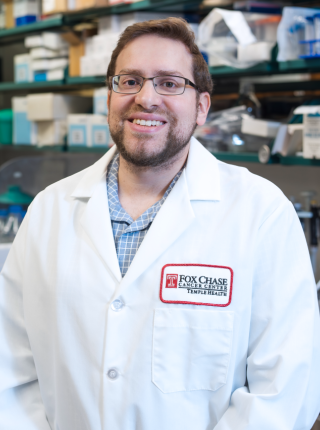
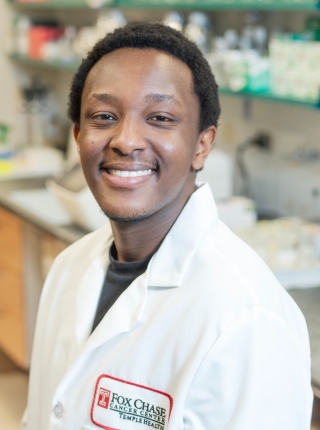

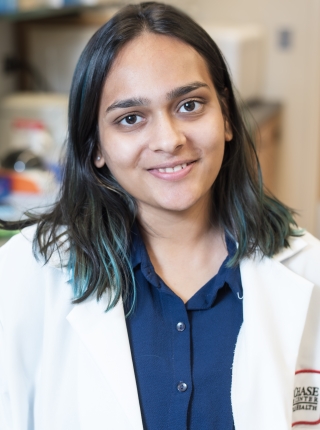
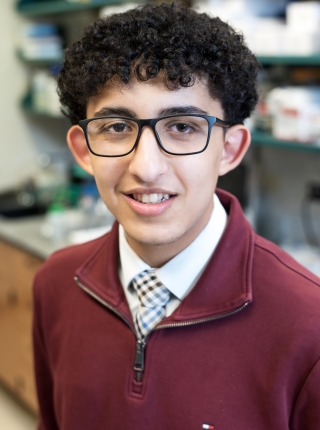



Demitrios Dedousis, MD
Hematology-Oncology Fellow
Jasmeet Kaur, MD
Hematology-Oncology Fellow
Zachary Kiss, DO
Radiation Oncology Resident
Elena Demidova
Doctoral Thesis Advisor
FCCC-Russian State Medical University Sister Institute Program
Current: GMP Manufacturing Associate, Clinical Vector Core, Raymond G. Perelman Center for Cellular, UPenn
Tiffiney R. Hartman, Ph.D.
Thesis Advisor, Arcadia University, PA
Current: Genetic Counselor, Roberts Individualized Medical Genetics Center, and the Division of Human Genetics at Children's Hospital of Philadelphia and Associate Director Genetic Counseling Certificate Program, UPenn
Shreya Shah, B.S., Research Assistant
Current: M2, University of Maryland School of Medicine
Jessica Mauricette, University of Delaware-FCCC Summer Fellow 2019
Current:Medical Student, Drexel University College of Medicine
Randy Lesh, Alpha Omega Alpha Carolyn L. Kuckein Student Fellow 2019
Current: Resident Physician, Head and Neck surgery, Geisinger
Mercedes Davis, Drexel University Undergraduate Co-op
Current: Continuing undergraduate studies, Drexel University
Amanda Browne, Scientific Technician I, Arora Lab
Current: Associate Scientist, GSK, Infectious Disease Research Unit
Ridwana Rahman, Research Assistant
Current: Research Technician, CHOP, Philadelphia
Tia Nicolas, Research Assistant II (Clinical Research Coordinator)
Current: Graduate Program, NYU
1. Variability in response to chemoradiation therapy. The ability of cells to recognize and repair DNA damage, particularly double-strand breaks (DSBs), is key to cell survival following chemoradiation therapy (CRT). We are investigating biological factors that influence DSB repair, which may explain the varied responses to CRT. This study is particularly relevant in locally advanced rectal cancer (LARC), where neoadjuvant CRT (nCRT) followed by surgery is the standard of care.
In recent work, we have demonstrated that not all patients equally benefit from CRT in the setting of LARC. We discovered that there are differential responses to LARC therapies even after accounting for clinical, pathologic, and various socioeconomic factors. These findings suggest that there is a need to explore factors—such as biological—to address these differences in response. This finding underscores a critical gap in our comprehension of CRT response and align with ongoing research into the biological factors influencing CRT efficacy. My lab has secured funding from the Department of Defense and the National Institute of Health to support this work.
2. Predictive biomarkers of response to chemoradiation therapy. Approximately 60% of newly diagnosed rectal cancer cases are locally advanced (i.e., LARC). All LARC patients get the standard of care, nCRT followed by surgery, however, not all patients derive complete benefit. This underscores a critical need for predictive biomarkers capable of discerning responders from poor responders.
Using methods I developed during my postdoctoral fellowship, in my lab, I tested an innovative hypothesis positing that inherent variation in the expression of DNA damage response (DDR) proteins could predict benefit from CRT. Our primary focus is on validating assays for standardized detection of DDR proteins in minimally invasive human biospecimens, such as blood. My lab has secured a multi-phase NIH (NCI) UH2/UH3 award, equivalent to an NIH R01 grant, to support this translational project. Our goal is clinical validation of the DDR assay to the point where it can be integrated, in the future, into clinical trials for predicting CRT response and guiding patient selection.
3. Genome instability and early-onset cancer risk. The rising incidence of early-onset cancers - diagnosed before age 50 - is a significant concern in the US and globally. In our FCCC catchment area, there is a significant rise in CRC and renal cell carcinomas. My lab is providing novel insights into genetic risk of cancer, and its implications for therapy. My lab has secured pilot funding for this work as we actively seek funding through other extramural sources.
Arora S, Yan H, Cho I, Fan HY, Luo B, Gai X, Bodian DL, Vockley JG, Zhou Y, Handorf E, Egleston BL, Andrake M, Nicolas E, Serebriiskii I, Yen TJ, Hall MJ, Golemis EA, Enders GH. Genetic Variants That Predispose to DNA Double-strand Breaks in Lymphocytes from a Subset of Patients With Familial Colorectal Carcinomas. Gastroenterology 149:1872-1883, 2015. PMID: 26344056; PMCID: PMC4663158.
Arora S, Kothandapani A, Tillison K, Kalman-Maltese V, Patrick SM. Downregulation of XPF-ERCC1 enhances cisplatin efficacy in cancer cells. DNA Repair (Amst). 2010 Jul 1;9(7):745-53. PubMed PMID: 20418188; PubMed Central PMCID: PMC4331052. Collapse
This Fox Chase professor participates in the Undergraduate Summer Research Fellowship.
Learn more about Research Volunteering.






